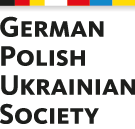The fourth DSC working meeting took place on February 25-26, 2017. On Saturday the 29 fellows had an exceptional opportunity to listen to four notable speakers from Germany, Poland and Ukraine. An inspiring breakfast which has already become a tradition at the DSC opened the fourth meeting on a Saturday morning. This inspiring breakfast was led by a Ukrainian activist and a former Chief of the Odessa Custom Service Yuliya Marushevska. Yuliya, who just came back from Odessa in January, talked about her job and how it is possible to implement reforms in Ukraine. In her presentation of the DOs and DONTs she outlined what is best to do and not to do when trying to implement any reforms. Yuliya encouraged the fellows to do changes and not to be afraid of the challenges. “When you succeed to impact your society, you will remember this feeling for all your life,” – she said.
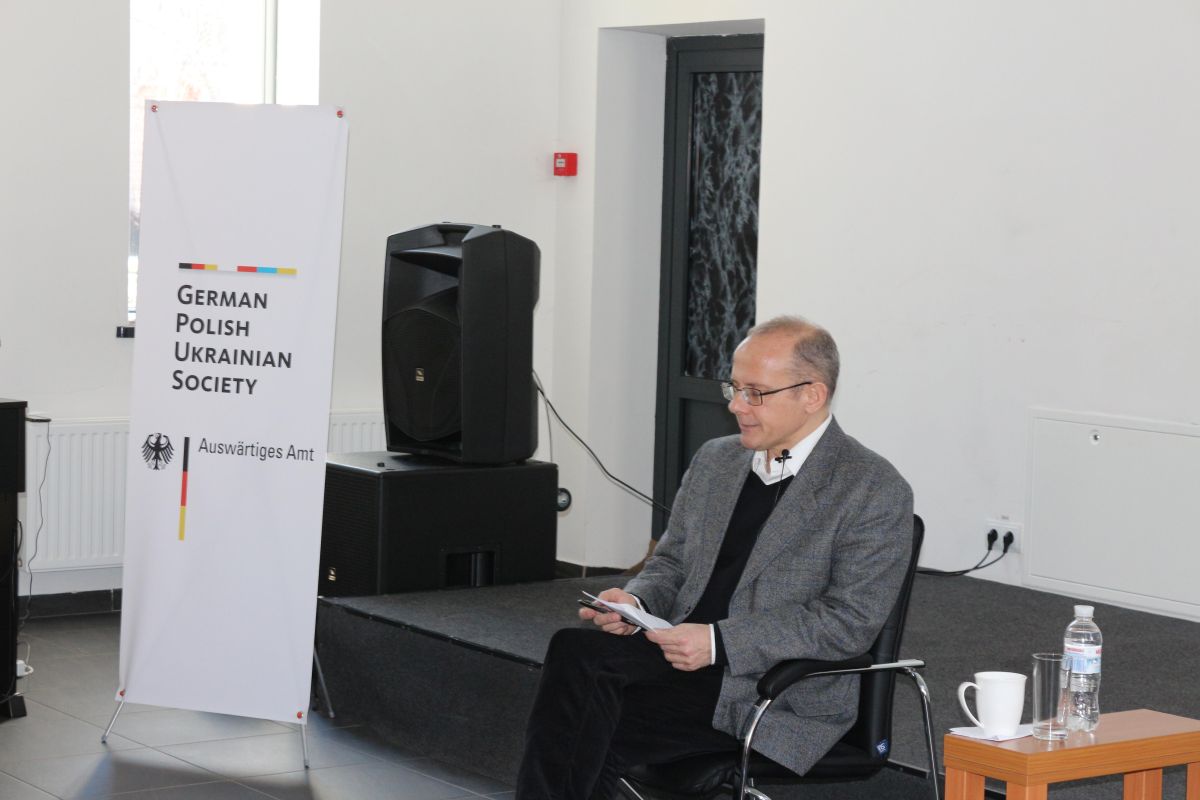
After such inspirational start of the day, the fellows had a chance to listen to a lecture by a German political scientist Andreas Umland. He is a historian and a Russian interpreter, specialising in contemporary Russian and Ukrainian history. Dr. Umland spoke about the future of Ukraine’s security. The lecture was mainly focused on the concept of Intermarium and a possible alliance of the Eastern European countries with the idea to decrease the security problems in Ukraine. It was followed by the discussion on Ukraine’s NATO membership and on the probability of bilateral agreements.
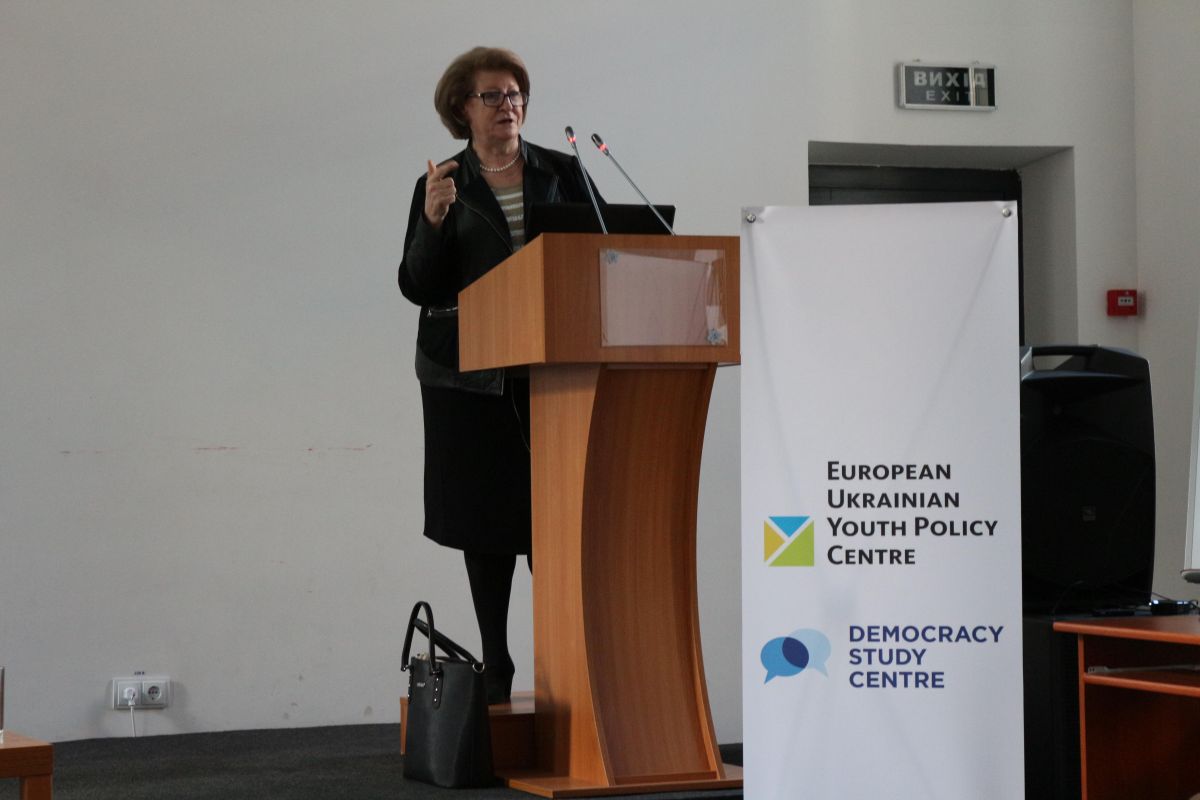
The third lecture was presented by the former Polish Prime-Minister and Honorary President of the Venice Commission Hanna Suchocka. Dr. Suchocka who is also a member of the Pontifical Academy of Social Sciences in the Vatican, a specialist in Constitutional Law and professor at Adam Mickiewicz University in Poznan talked about the judicial reform and challenges to democracy. She started her lecture by saying that nowadays everything is open to young scholars and she wanted to present her point of view on several issues. Dr. Suchocka spoke about the difference between democracy and democratisation, about first democratic reforms in Poland and more specifically about judicial reforms and their costs.
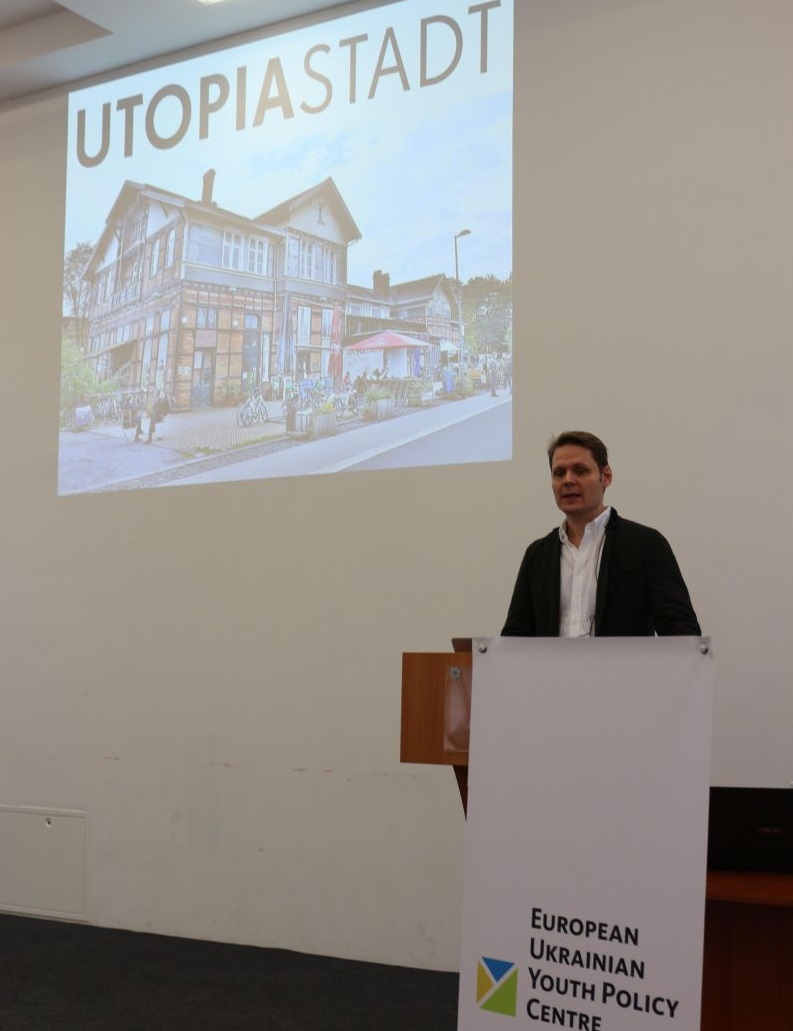
The last lecture was given by a Senior Fellow at the Democracy Study Centre, a Political Anthropologist and a Lecturer at the Department of European Ethnology (Cultural/Social Anthropology) at Humboldt-University Berlin Jens Adam. Dr. Adam’s topic was on how it is possible to study emerging forms of urban democracy. He started with the appreciation of the name of the Democracy Study Centre project and stated that we should always keep in mind that democracy is not a static curriculum. He shared his perspective on democracy promotion and how our perspectives of democracy form.
The busy day did not end on that as some of the groups proceeded to their internal work group discussions.
The second day started with the group presentations. Each of the five DSC groups presented their projects. The DSC Commission which consisted of the Chairwoman of the German-Polish-Ukrainian Society Barbara Monheim, the DSC Project Manager Iryna Chernysh, the Senior Fellow of the DSC Jens Adam and the Senior Programme Advisor Yuliya Tychkivska gave each group their comments on how to better organise their work and research. The project presentations were followed by the group work.
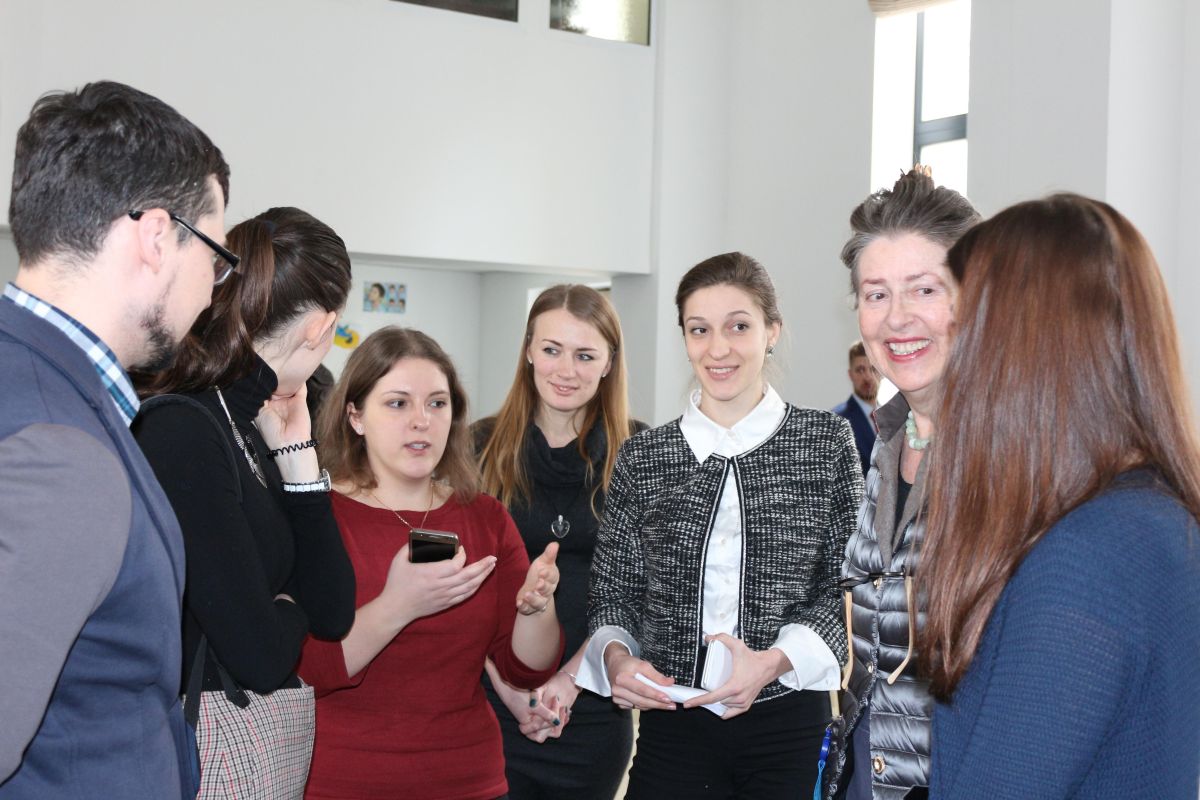
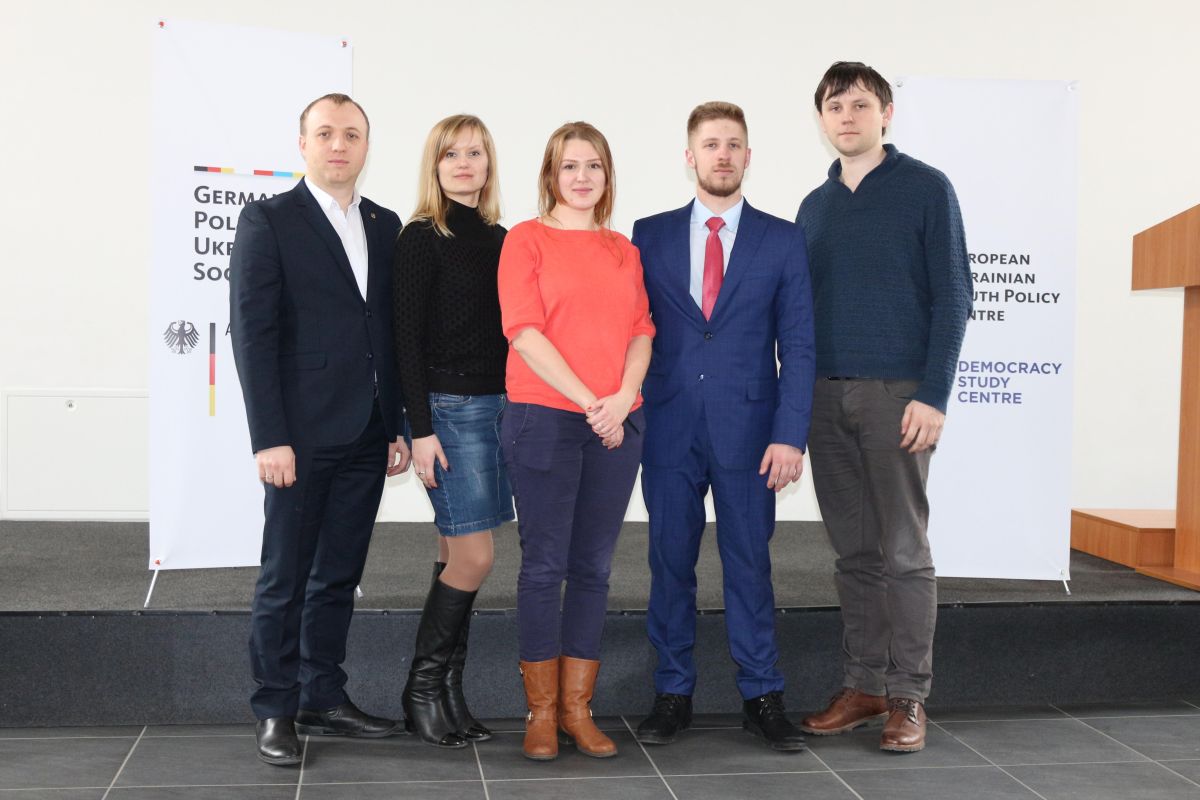
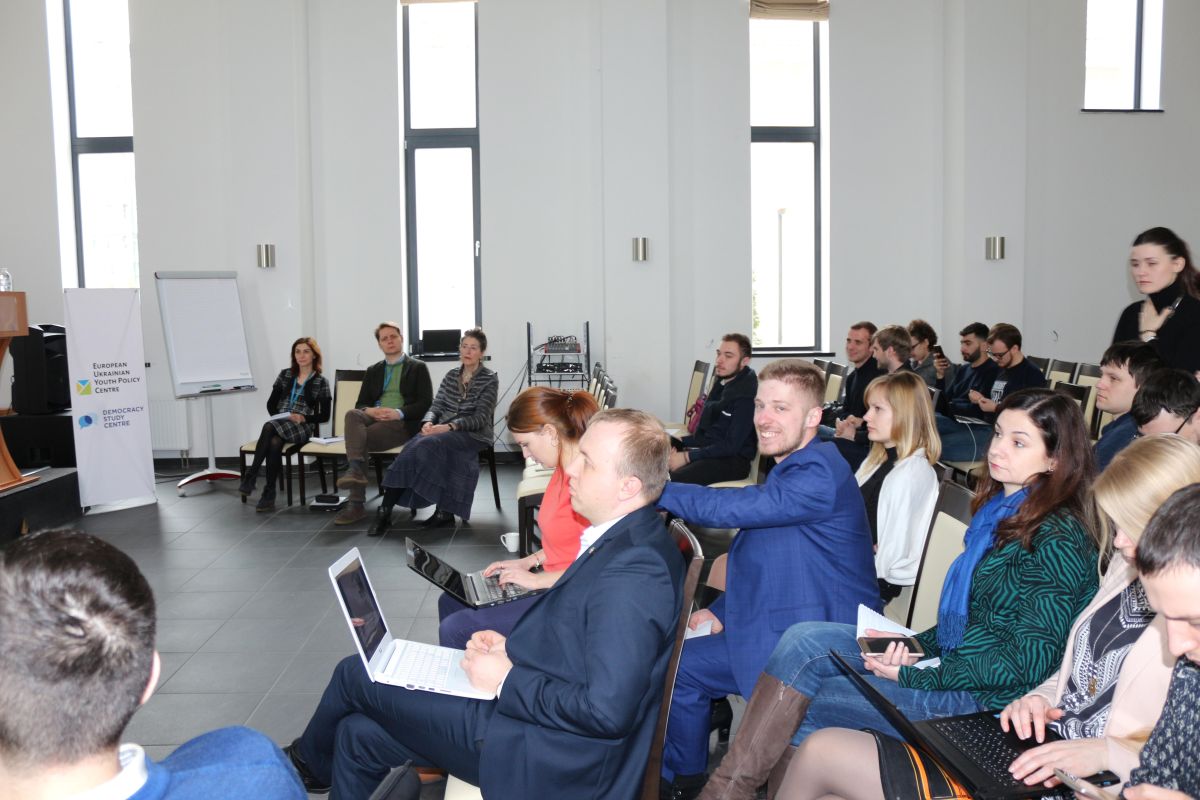
You can find the programme here.
